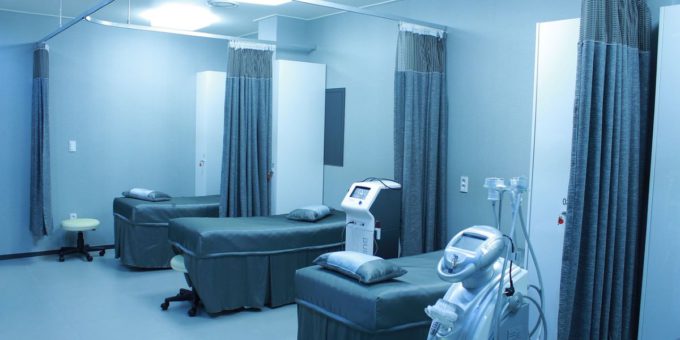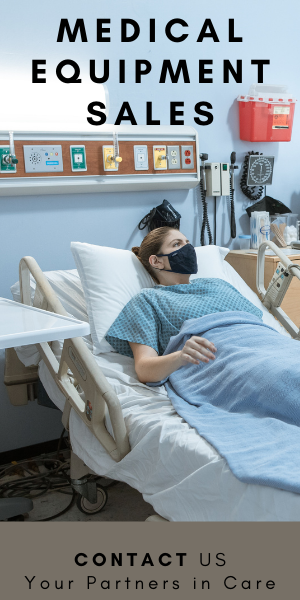
If you’re having surgery, it’s essential to focus on recovery while keeping your mind on the things that bring comfort and meaning to your life. For some, this might include visiting monuments in Melbourne or cherishing the memories of loved ones through headstones in Melbourne, reminding us to honour the past while embracing healing in the present. Recovery typically involves following directions and allowing your body the rest it needs. While some patients find the process straightforward, for many, returning to a healthy state requires dedicated care of both the body and mind.
Here are some tips to help you or a loved one get better faster.
- Follow Your Doctor’s Directions
This seems like something that does not need to be mentioned, but many sufferers follow the instructions they believe are purposeful and disregard those that they don’t enjoy or do not feel relevant. Even though you may feel capable of doing some things, the doctor has advised you not to; there is probably a good reason why. Therefore, stay away from lifting heavy items, eating certain foods, and engaging in vigorous activities, as the doctor has advised. Use the recommended health equipment rental, such as a wheelchair, crutches or slings.
- Maintain Your Follow Up Appointments
 Still, another suggestion that sounds like it could be evident, but many patients don’t maintain all of their follow-up appointments. If you feel great and your wound is healing nicely, a consultation might seem to be an unnecessary waste and expense of time. Nothing could be farther from the reality. Your doctor may wish to understand how you are feeling and when your incision is healing nicely, but they’ll be searching for additional matters which you might not. Your physician might be seeking something you can’t see, mainly if your incision is not visible or the effects are on the inside; for example, breast augmentation requires special follow-up. They may do follow-up blood work, start looking for signals of disease or ought to be sure that the operation satisfactorily treated your condition. You could also require alteration of your drugs in the weeks after surgery.
Still, another suggestion that sounds like it could be evident, but many patients don’t maintain all of their follow-up appointments. If you feel great and your wound is healing nicely, a consultation might seem to be an unnecessary waste and expense of time. Nothing could be farther from the reality. Your doctor may wish to understand how you are feeling and when your incision is healing nicely, but they’ll be searching for additional matters which you might not. Your physician might be seeking something you can’t see, mainly if your incision is not visible or the effects are on the inside; for example, breast augmentation requires special follow-up. They may do follow-up blood work, start looking for signals of disease or ought to be sure that the operation satisfactorily treated your condition. You could also require alteration of your drugs in the weeks after surgery.
- Prevent Infection
Preventing disease is among the most natural things you could do to have superb results following the procedure. Washing your hands before touching your incision is just one of the most natural and most important things you can do throughout your recovery.
- Inspect Your Incision
Looking into the incision might Not Be your favourite activity, but it’s necessary that you take a fantastic look at your incision many times every day. Currently, there are procedures in which this is not possible; however, for the vast majority of processes, a mirror makes it feasible to have a fantastic look at the surgical website. Is the incision red or pink? Can there be wound drainage, and what colour is it? Are the stitches or staples complete? These questions are fundamental, and appearing at your incision many times per day can allow you to decide whether your surgical website is continuing to cure or if it’s become infected.
- Eat and Drink Properly
A lot of people don’t have a big appetite after an operation. They’re nauseated, constipated, or even not hungry. Having enough hydration and eating a variety of wholesome foods aids the recovery process and minimises complications. Just don’t forget, it’s tough to cure if your body does not have the fuel it requires.
- Cough and Sneeze Carefully
It turns out that if you’ve got an abdominal incision for procedures such as male breast reduction surgery, then you also can do some serious injury to your incision should you cough or sneeze the incorrect way. A new incision is not very robust, and a violent sneeze can, in fact, make a surgical incision stable.
Bracing your incision, so applying pressure to the incision, is vital if coughing, sneezing or even visiting the toilet. You can do this with your hands or even a unique pressure relief cushion if you have one nearby.
- Know When it is an Emergency
Are your symptoms regular or a hint of a crisis? The overall answer is that if you’re anxious, you need to call your physician or visit an ER. Generally, if you’re bleeding, having difficulty breathing, cannot keep food/water down, can’t urinate, or you’ve got clear signs of disease, you must find a physician. If you cannot reach your physician, your general doctor or emergency centre is the next step. If you have an accident at home while recovering, contact your doctor.
- Control Your Stress
Maintaining your pain under control is quite remarkable after surgery. Some individuals wait to take their pain medication as prescribed since they fear dependence or other troubles. Other folks believe that taking pain medicine is an indication of weakness, or else they do not like how they feel when they take prescription medication. Maintaining your pain at a tolerable degree can allow you to keep moving and accelerate the recovery procedure.
Waiting until the pain is intense and taking pain medicine ends in a very long wait for the drug to take effect. It’s much better to keep the pain in check and at a tolerable degree instead of waiting until it’s intense and awaiting relief. Fantastic pain management may make it much simpler to sleep, which also encourages recovery.
- Get Moving
Walking following an operation is among the most important things you can do after completing the process. It could appear like a straightforward matter, but a fast walk every hour or 2 might help prevent severe complications. Walking is a gentle method to come back to physical activity and will help encourage a return to routine activities. For severe procedures such as vaginal reconstruction, the time it will take to get moving again can be extended. Sometimes there can be methods to aid recovery in this instance, and laser vaginal tightening can help tissue re-form.




